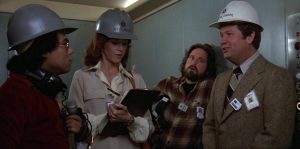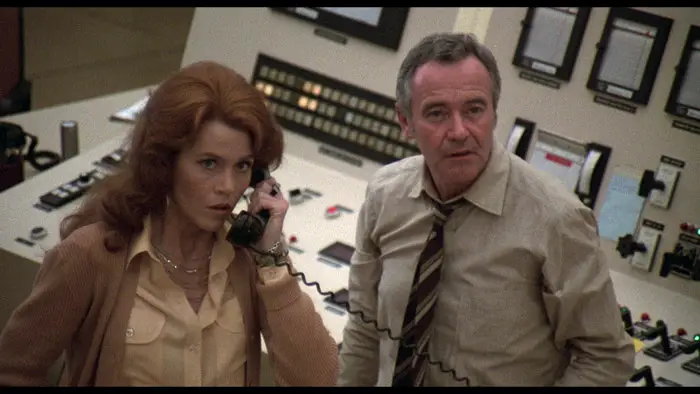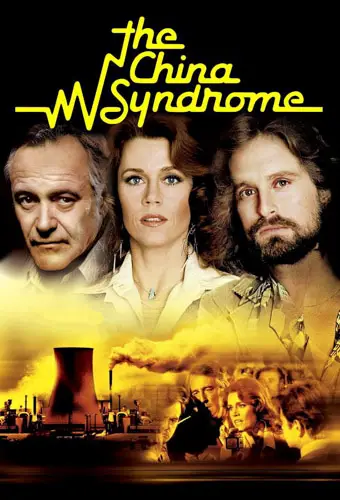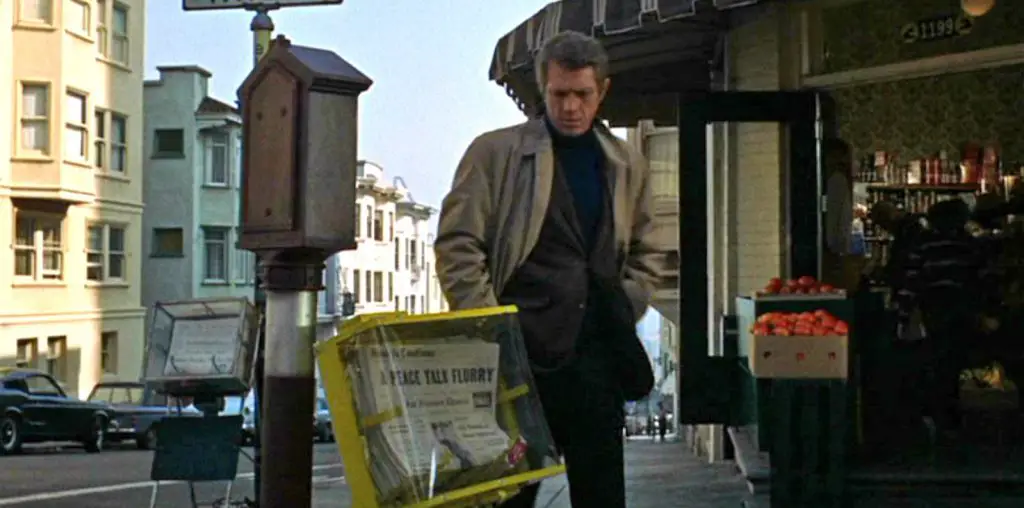
TCM CLASSIC FILM FESTIVAL 2021 REVIEW! Often counted among the greatest journalism films ever made, James Bridges’ 1979 neo-noir thriller, The China Syndrome, is a cautionary tale about the precarious operating conditions of nuclear plants. When the entire world is focused on battling the pernicious effects of climate change by finding alternative sources of viable and sustainable energy, the thriller reminds us that things can go wrong at any moment if corporations prioritize profit margins over the lives of people. The most striking example of the movie’s continuing relevance was the tragic Three Mile Island nuclear accident in Pennsylvania just twelve days after its initial release. Executives from the nuclear industry claimed that the script by Mike Gray, T. S. Cook, and director Bridges was “sheer fiction” until that happened.
More than anything else, its primary dramatic force is the strength of the central characters. Jane Fonda stars as Kimberly, an ambitious reporter who is not taken seriously by her superiors. Despite her insistence on covering “hard news,” she is assigned to cover the birthdays of zoo animals. When she hesitates to push the boundaries of journalism, her cameraman Richard (Michael Douglas) convinces her to be true to herself and leap forward. However, there cannot be any questions regarding who steals the show. It is undoubtedly Jack Lemmon whose performance as Godell, a conscientious nuclear plant supervisor, shapes the dramatic power of the narrative.

“When an accident happens at the power plant, executives work hard to underplay it and sidestep the necessary investigations…”
The central conflict of The China Syndrome is the incompatibility between concern for public safety and the lack of regulations that major companies exploit. When an accident happens at the power plant, executives work hard to underplay it and sidestep the necessary investigations, but it is obvious that something is very wrong. To expose the sinister machinations of the suits who wish to deny the very real possibility of nuclear annihilation, Kimberly teams up with Richard and Godell. However, every imaginable obstacle is hurled at them. The corporation is so influential that it hires criminals to spread violence and fear, pushing Godell to his breaking point. He grabs a gun and takes over the control room, demanding the immediate dispensation of the truth to the general public.
Bridges understands the atmospheric anxiety of the story so well that he orchestrates the visual narrative and the sound design to add to the paranoia. The background chatter of alarm signals and the fast-paced editing create an interface for the audience to experience a brand of fear that is palpable. The China Syndrome is underlined by a sense of immediacy, which is reflected in its handling of the tragedy, choosing to confront the blatant manipulation of facts instead of meditating on the parasitic actions of the company executives who do not care about the value of human lives. By the end, it is unclear whether we should laud the bravery of the fearless and the martyrs or whether we should evaluate just how close we are to an impending apocalypse.
The China Syndrome screened as part of the 2021 TCM Classic Film Festival.

"…underlined by a sense of immediacy..."


